
Many people have floated different theories about the cyclical nature of the bi-polar politics of Kerala beginning from 1982. Kerala had its first elected government in 1957 which was only the second instance of a communist party coming to power with democratic means anywhere in the world. For the next 25 years of turbulent politics, accentuated by factors like caste and religious organisations dictating political outcomes as in the 1959 Liberation struggle, the Sino-Indian war of 1962, the proclamation of internal emergency in 1975, split in the communist party in 1964, three splits in the Congress (1964, 1969, 1978)- the state would only see one government completing its term.
Read: As Modi talks Somalia, Chandy feels he can transform Kerala into Dubai
As for the stability, crystallisation and the emergence of ideologically coherent coalitions since 1982 that get voted out of power every five years, commentators have always linked it to high literacy levels, general anti-incumbency, corruption, factionalism, unfulfilled expectations and other specific reasons for this predictable cycle spanning 34 years.
One theory that may unfold as a pattern, at least in the downfall of the alternate UDF governments- be it in 1996, 2006 and even in 2011 where they almost stumbled- has to do with sex scandals or scandals involving women and linked to prominent politicians of the ruling alliance.
Here's a look at some of the cases that have rocked the political scenario in Kerala:
Solar Scam (2013-2016)
The Solar scam involving Saritha Nair, all the way back from 2013, is still of relevance today, with links to many politicians in the Congress party including the Chief Minister Oommen Chandy. All these allegations remain in the realm of speculations or allegations and no charges have been proved directly against any of them, though a brief taped conversation involving a sitting MLA and a confidant of the Chief Minister had emerged recently. It proved costly for that particular member of the assembly as he was denied a ticket to contest once again from a very safe seat despite the Chief Minister's insistence.
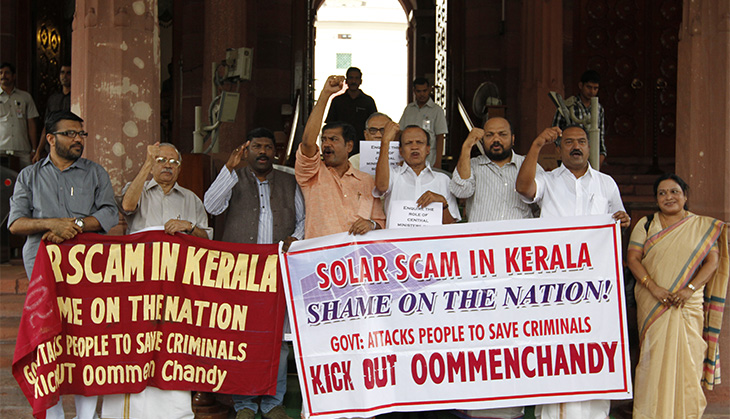
The one-member Solar Commission was also given "digital evidence" by Saritha Nair on the eve of the elections to try and prove the facts that emerged out of a leaked (or staged?) letter that was broken by a prominent channel almost a month back. Despite the High Court not entertaining Saritha's fresh petition against the CM as it thought the complainant had no credibility due to her frequent U-turns over the past couple of years, there is no doubt that at least a minor section of the population would go by the maxim of no smoke without fire and cast their vote on this premise, thus damaging the UDF's prospects once again.
Suryanelli Case (1996)
It all began with the 1996 election. The Suryanelli rape case involved a 16-year-old school girl from Idukki district who went missing on 16 January 1996 from her hostel in Munnar. She was kidnapped and then raped by multiple people before she resurfaced at her father's workplace 40 days later.
Also read: VS Achuthanandan is the Samurai who never ages. What's his secret?
The case took a political turn just a month before the assembly elections when the girl saw a picture of the then Minister in the Narasimha Rao cabinet and the current deputy chairman of Rajya Sabha, P. J Kurien in a newspaper on 26 March and identified him as one of the persons who sexually abused her at the Kumily guest house. Though Kurien was let off later as there was no evidence to prosecute him, the Left front and VS Achuthanandan had successfully managed to make it a poll issue against AK Antony and the Congress government.
Ice-cream parlour case (2005-2006)
Though the case first emerged in 1997, it was only in 2005 that it became a political tool for the opposition. Regina, the victim in the 8-year-old scandal, named prominent Muslim League leader and Minister in the Oommen Chandy government PK Kunjalikutty as one of her tormentors.
Though the Kerala High Court dismissed the petition seeking Kunjalikkutty's prosecution in 2005 after he had stepped down as a minister, and even after the Supreme Court dismissed the case in 2006 on the basis of lack of evidence, it became a potent weapon for the LDF in achieving a thumping victory at the hustings. It should not be missed that Kunjalikkutty lost that election in their stronghold of Malappuram which would have been inconceivable without the scandal.
Ice cream parlour case redux (2011)
In January 2011, KA Rauf, the husband of Kunjalikkutty's sister-in-law, and his one-time close associate, alleged that he paid off the victims and the judges at the behest of Kunjalikkutty. Curiously, the news was carried by a channel controlled by fellow Muslim League leader, MK Muneer. The Left front government under VS Achuthananthan promptly ordered an inquiry. With just 3 months to go for the elections, it almost scuttled the UDF's chances to wrest back power and when the votes were tallied, the UDF had managed to defeat the LDF by a slender margin of 72-68. That's a margin of less than one percentage of the vote share.
Read more- Kerala: For CPM, winning the election is only half the battle
We shall know on 19 May whether the solar scam involving Saritha Nair would drastically affect the chances for the UDF even as they are banking on their development initiatives to retain power.
Postscript: The Thankamani scandal in 1986 had nothing to do with politicians of any party except for police excesses. The Peechi incident of 8 December 1963 involving the then Home Minister PT Chacko and his subsequent death that led to a major split in 1964 caused the Congress party to go from 63 down to 9 seats (out of 126) by the 1967 Kerala assembly.
More in Catch:
Narendra Modi's Republic of Fear
These women aren't just rocking the Cannes red carpet - they're taking on fashion fundamentalists
Festering sore: new domicile policy turns Jharkhand into a tinderbox
AgustaWestland: the curious case of Swamy's 'evidence' against Congress
First published: 16 May 2016, 1:09 IST

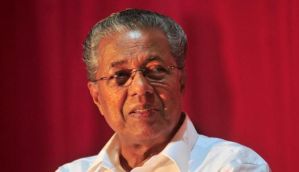
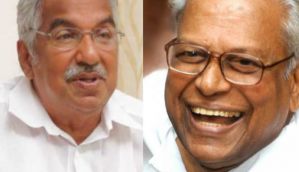
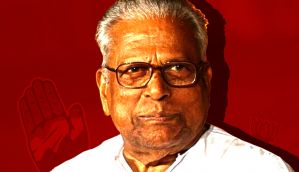
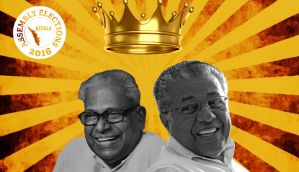
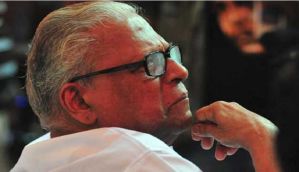
![BJP's Kapil Mishra recreates Shankar Mahadevan’s ‘Breathless’ song to highlight Delhi pollution [WATCH] BJP's Kapil Mishra recreates Shankar Mahadevan’s ‘Breathless’ song to highlight Delhi pollution [WATCH]](https://images.catchnews.com/upload/2022/11/03/kapil-mishra_240884_300x172.png)

![Anupam Kher shares pictures of his toned body on 67th birthday [MUST SEE] Anupam Kher shares pictures of his toned body on 67th birthday [MUST SEE]](https://images.catchnews.com/upload/2022/03/07/Anupam_kher_231145_300x172.jpg)






